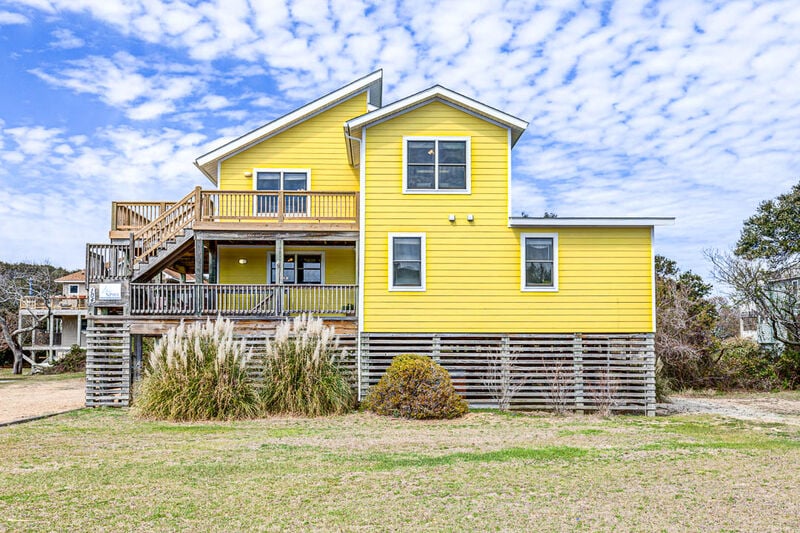
This is the 80 Anniversary year of outdoor drama
The Lost Colony. Written by Pulitzer Prize winning playwright Paul Green and first performed in 1937, except for four years during WWII—1942-1945—the play has been a mainstay of Outer Banks life.The play is a historical drama, telling the story of the first attempt by the English to colonize the New World.Green clearly did a lot of research in creating his story and much of it rings true in the annals of history...but maybe not all of it. We thought it might be interesting to rate some of the personalities and events in the play.
Ralph Lane
Captain Ralph Lane was in charge of the Roanoke Island garrison charged with holding the island until the colonists could arrive.At one point in the play one of the characters describes him as a "brave and thoughtful man..." A description that is quickly amended to just "brave." A more apt description may have been impetuous, impatient and violent, character traits that served neither him nor the English well in his time of command.A strong case can be made that Lane's actions began a series of events that assured the failure of the Roanoke Colony.Green's script has Lane attacking and killing King Wingina, the Indian chief who ruled all the surrounding villages. That event did occur on June 10, 1586.The reasons are somewhat muddled. Some accounts point to a response for a petty theft—which is implied in the play. Other accounts indicate that Lane was concerned that Wingina was organizing local villages for an attack.Either way, the effect was to unite the local Indians in opposition to the English.
Accuracy: Spot on True.Philip Amadas
Speaking with a Spanish accent, surly, argumentative and hot-tempered, in the play Green implies that Philip Amadas betrayed the colonists to the Spanish.If he did, he would have been in an ideal position to do so. The ship's captain of at least two of the early voyages to Roanoke, he had ample opportunity to come to know the North Carolina shoreline.The problem is Amadas was not Spanish. His parents, John and Jane Amadas lived in Plymouth, England where he was born in 1565. Although unclear about the exact sequence, he was a member of Sir Walter Raleigh's personal household, making it highly unlikely that he would betray his employer. There is also evidence that the made at least one additional trip to the New World, this time to explore Chesapeake Bay.
Accuracy: Random grains of truth do not support the dramatic license.Spanish Armada
In one of the most emotionally wrenching scenes of the play, Governor John White and Sir Walter Raleigh beg Queen Elizabeth I to allow two small supply ships to sail for the Roanoke Colony. The men know the colony cannot survive without the supplies.White, who had witnessed the birth of his daughter, Virginia Dare, before he returned to England, is particularly distraught, telling the Queen that his daughter and granddaughter will die if the ships don't sail.Fearful of Spanish naval strength and knowing a massive force is being created to crush England, the Queen forbids any vessel to leave British waters.The Spanish Armada, which set sail in July of 1588, was the Spanish response to years of simmering conflict between the two nations that centered on who would control and ultimately colonize North America. The crushing defeat of the Armada by England was the beginning of 300 years of British domination of the seas.
Accuracy: Spot on True with additional points for highlighting the personal cost of war.Tobacco and Potatoes
Old Tom, who provides the comic relief in the play, wonders aloud about all these new things coming from the Virginia Colonies—as Roanoke was called. He talks about potato pie and the phenomena of smoking a pipe in particular.Sir Walter Raleigh convinces the Queen to try tobacco, informing her that among other things it would help with the vapors—a classical euphemism for gas. Elizabeth primly tells him she does not suffer from the vapors, but tries tobacco anyway.Her coughing and hacking is reminiscent of any first time user's experience with the leaf.Tobacco, which was in widespread use by North American Indians, could certainly have been brought from the first Roanoke explorers in 1585 to England...except most sources credit Sir John Hawkins, an English naval commander and explorer, with introducing the leaf to England in 1564 or 1565. Under any circumstances the leaf was well-known to Spanish explorers. Columbus, in his third voyage to the New World in 1498, named the small island to the north of Trinidad, Tobago after the tobacco he saw planted there.The potato is native to the Andes mountains and was brought to Europe by the Spanish. Popular legend has Raleigh introducing the potato to Ireland, where he had extensive holdings. That legend, however, is largely dismissed by historians, noting among other things that cultivation of potatoes in Ireland did not begin until the late 1590s, after the Roanoke expeditions had ended.
Accuracy: As historic fiction it's a permissible part of the tale. As factual history? Dubious at best.Manteo and Wanchese
In the play, Native Americans Manteo and Wanchese agree to sail to London with John White after his first foray to Roanoke Island in 1584. When they return with the colonists of the Lost Colony, Wanchese discovers that his father, Wingina has been killed by Lane and that he is now the King of his people.Wanchese confronts Governor White, telling him that although he trusts the heart of White, he has seen the heart of the English and he believes they wish to own the land of his people. He then tells White the Colony has to leave.Manteo remains the friend of the settlers and it is his aid through the winter when no relief ship arrives that helps the colonists survive.Wanchese and Manteo become bitter enemies, ending with the death of Wanchese at Manteo's hand when the local tribe attacks the English village.Dramatic license aside, this is a remarkably accurate picture of what really happened.Wanchese and Manteo did return with White to England where they lived on Sir Walter Raleigh's estate. Upon returning home, Wanchese refused to have anything further to do with the English and Manteo continued to cooperate with the colonists, working as an interpreter and liaison to local tribes.Where there is some room to quibble about facts is whether Wanchese was Wingina's son. He was the chief of one of the local villages, but it is doubtful if he was Wingina's son. There is also no evidence that he and Manteo fought a duel to the death.
Accuracy: Spot on accurate with a little bit of permissible dramatic license.Our Conclusion
If there is some blurring of history and story telling, the essential facts are accurate. Under any circumstances, the The Lost Colony is worth a visit for a great evening of theater.
 This is the 80 Anniversary year of outdoor drama The Lost Colony. Written by Pulitzer Prize winning playwright Paul Green and first performed in 1937, except for four years during WWII—1942-1945—the play has been a mainstay of Outer Banks life.The play is a historical drama, telling the story of the first attempt by the English to colonize the New World.Green clearly did a lot of research in creating his story and much of it rings true in the annals of history...but maybe not all of it. We thought it might be interesting to rate some of the personalities and events in the play.
This is the 80 Anniversary year of outdoor drama The Lost Colony. Written by Pulitzer Prize winning playwright Paul Green and first performed in 1937, except for four years during WWII—1942-1945—the play has been a mainstay of Outer Banks life.The play is a historical drama, telling the story of the first attempt by the English to colonize the New World.Green clearly did a lot of research in creating his story and much of it rings true in the annals of history...but maybe not all of it. We thought it might be interesting to rate some of the personalities and events in the play. This is the 80 Anniversary year of outdoor drama The Lost Colony. Written by Pulitzer Prize winning playwright Paul Green and first performed in 1937, except for four years during WWII—1942-1945—the play has been a mainstay of Outer Banks life.The play is a historical drama, telling the story of the first attempt by the English to colonize the New World.Green clearly did a lot of research in creating his story and much of it rings true in the annals of history...but maybe not all of it. We thought it might be interesting to rate some of the personalities and events in the play.
This is the 80 Anniversary year of outdoor drama The Lost Colony. Written by Pulitzer Prize winning playwright Paul Green and first performed in 1937, except for four years during WWII—1942-1945—the play has been a mainstay of Outer Banks life.The play is a historical drama, telling the story of the first attempt by the English to colonize the New World.Green clearly did a lot of research in creating his story and much of it rings true in the annals of history...but maybe not all of it. We thought it might be interesting to rate some of the personalities and events in the play.








